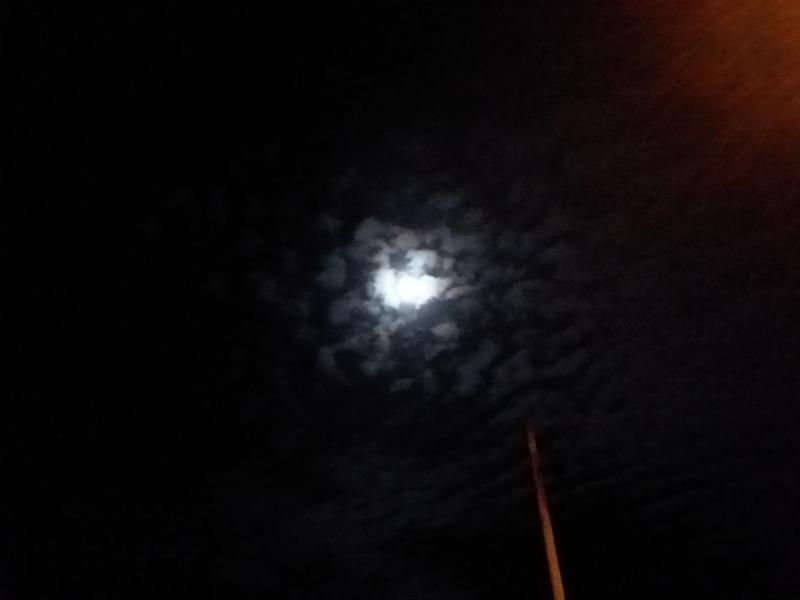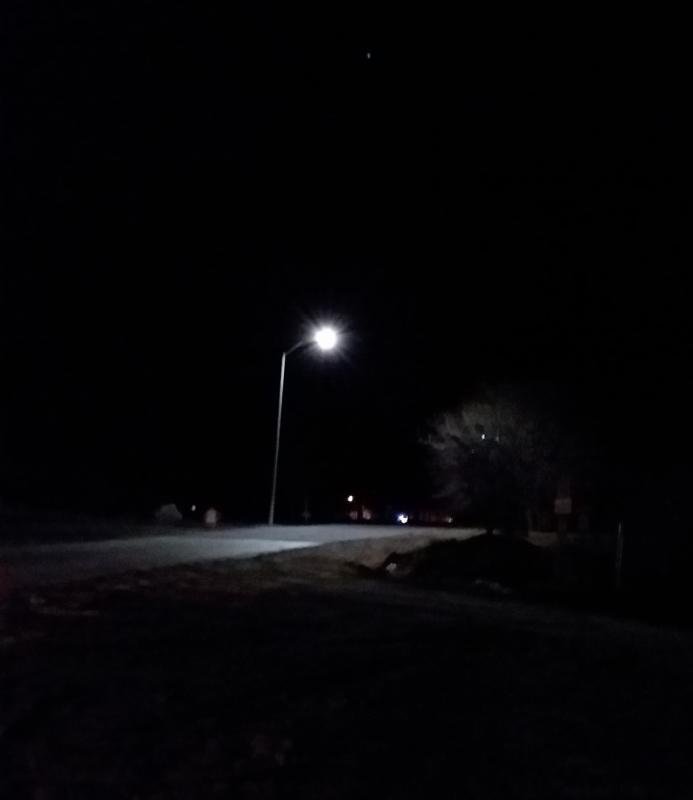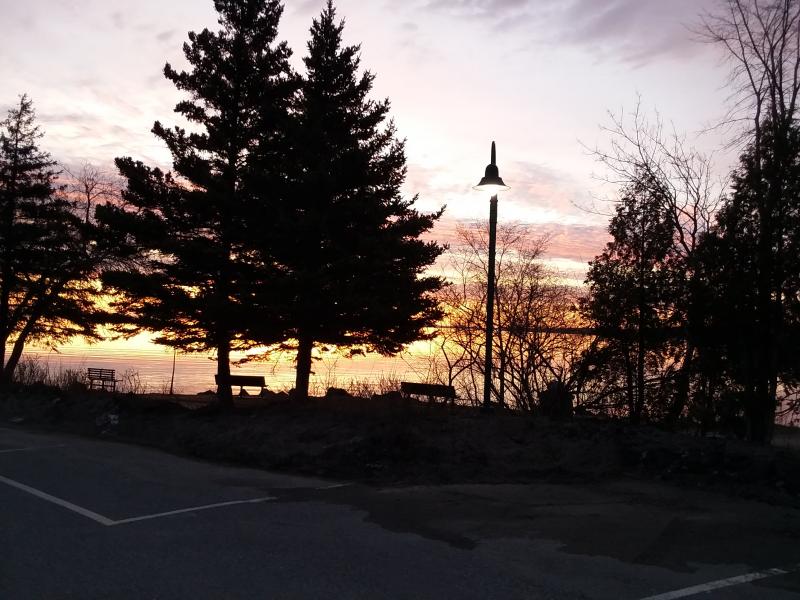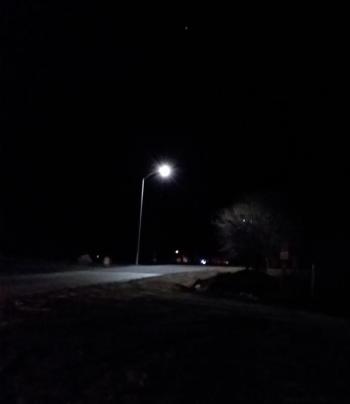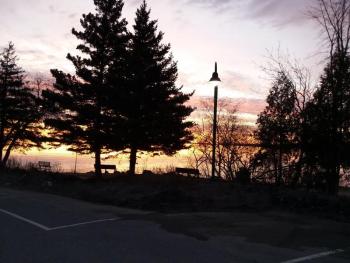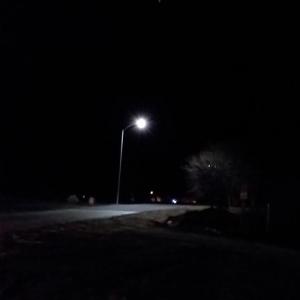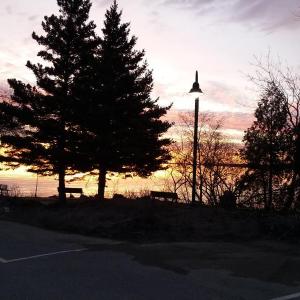Rockland works to minimize light pollution, increase residents’ health
ROCKLAND — Move over “Coast Guard City” and “Arts Capital of the World.” Rockland is working toward a new designation for its community: Dark Sky Compliant.
As the City shines its lantern on LED lighting, the Rockland Energy Committee continues working toward amending its current lighting ordinance to comply with Dark Sky, an international movement.
Residents, businesses, and especially parking lots will be affected, according to Committee members Gilliad Munden and Hannah Barrows as they discussed why the amendment wouldn’t be ready in time for the Monday, Jan. 13 regular Council meeting.
The purpose of Dark Sky is two-fold, according to sponsor of the future amendment, Councilor Valli Geiger, during the Monday, Jan. 6, agenda-setting meeting.
1.) to decrease light pollution. “Light is meant to shine down so that you can actually use it to see where you want to go,” said Geiger. “For many, there’s a lot of bad lighting out there that shines up into the sky, which diminishes the night sky. But, [for it to shine upward] that’s pointless in terms of its purpose.”
2.) the risk of disturbing residents’ sleep and disturbing the animal growth and productivity in the surrounding habitat, “because white LED light is really bad for circadian rhythm,” she said. “It really interrupts people’s sleep and it interrupts birds, bees, etc.”
According to Geiger, the first purpose is something the Council has already tended to by moving Rockland’s City lights to LED lighting.
“It’s also an opportunity to say ‘not only is the City changing its lights, but anybody who is doing anything new: new renovations, new building, should be looking at LED warm lighting that is focused down, and they should be thinking about their neighbors,’” said Geiger.
Councilor Nate Davis expressed further concern for the neighbors by pointing to the current language stating that a resident can use a bulb up to 2,000 lumins, “which means you could theoretically have quite a bright light on your residential property shining into the next property,” he said.
Yet, Energy Committee member Hannah Barrows reiterated that most residences don’t use much lighting, and those lights already must be directed 90 degrees downward.
Education is a part of the Compliance, according to Barrows. In order for the City to consider itself Dark Sky Compliant with it’s new bulbs, the City must endeavor to make sure that everyone in the community understands what it means to be dark sky compliant, and what the benefits are.
A third purpose to the amendment itself, according to Councilor Ed Glaser, is to put a timeline in place for when commercial and residential property owners must meet the guidelines.
Eventually, everyone in Rockland will have to switch their outside lighting to LED when their current bulbs burn out. Yet, the current ordinance gives people another ten years to comply, creating an enforcement problem.
“If nothing happens for nine years, all of a sudden everybody has to comply,” he said.
And then, the foreseen hardship by some. Though it’s expected that new commercial entities taking over properties must automatically bring the properties up to compliance, residential properties are a bit different, according to City Manager Tom Luttrell.
“Say I buy a house and five years from now I’ve got to redo all of my lighting and I’m a first-time homeowner,” he said. “Now I have to take all of that added expense on.”
Geiger said she went on a personal Dark Sky compliant spree a year ago.
“I got motion sensors,” she said. “Some are solar. Some are not. It’s pretty inexpensive, actually, to do a motion sensor or a light that’s on a timer that’s LED. The cost has come down remarkably. That is not true for a large commercial operation. For residents, I think I spent $20 and $9 more for 4 D batteries. It’s lasted well over a year now cause it’s motion detected. It just goes on and off. So we’re not talking about a huge expense.”
However, to ease Luttrell’s concern, Geiger suggested only enforcing the code if an owner is renovating above a certain percentage, or building new.
Luttrell agreed.
“In those situation’s they’d be taking on added costs, anyway,” he said.
The Committee will continue to sift through similar ordinances created by other, larger municipalities, and written in deep, technical detail.
“It’s really easy to get into the weeds with this one,” said Geiger.
Reach Sarah Thompson at news@penbaypilot.com
Event Date
Address
United States

